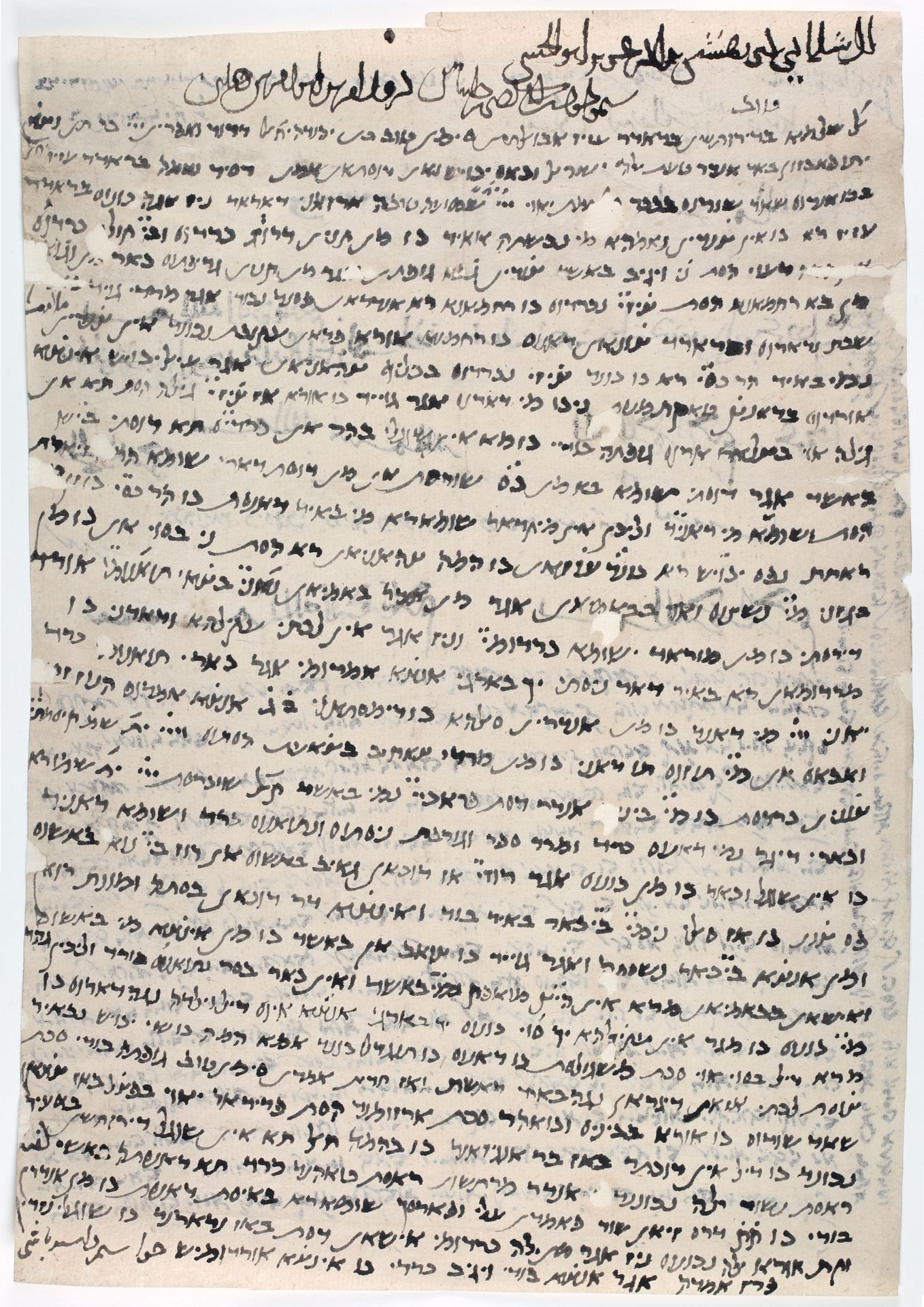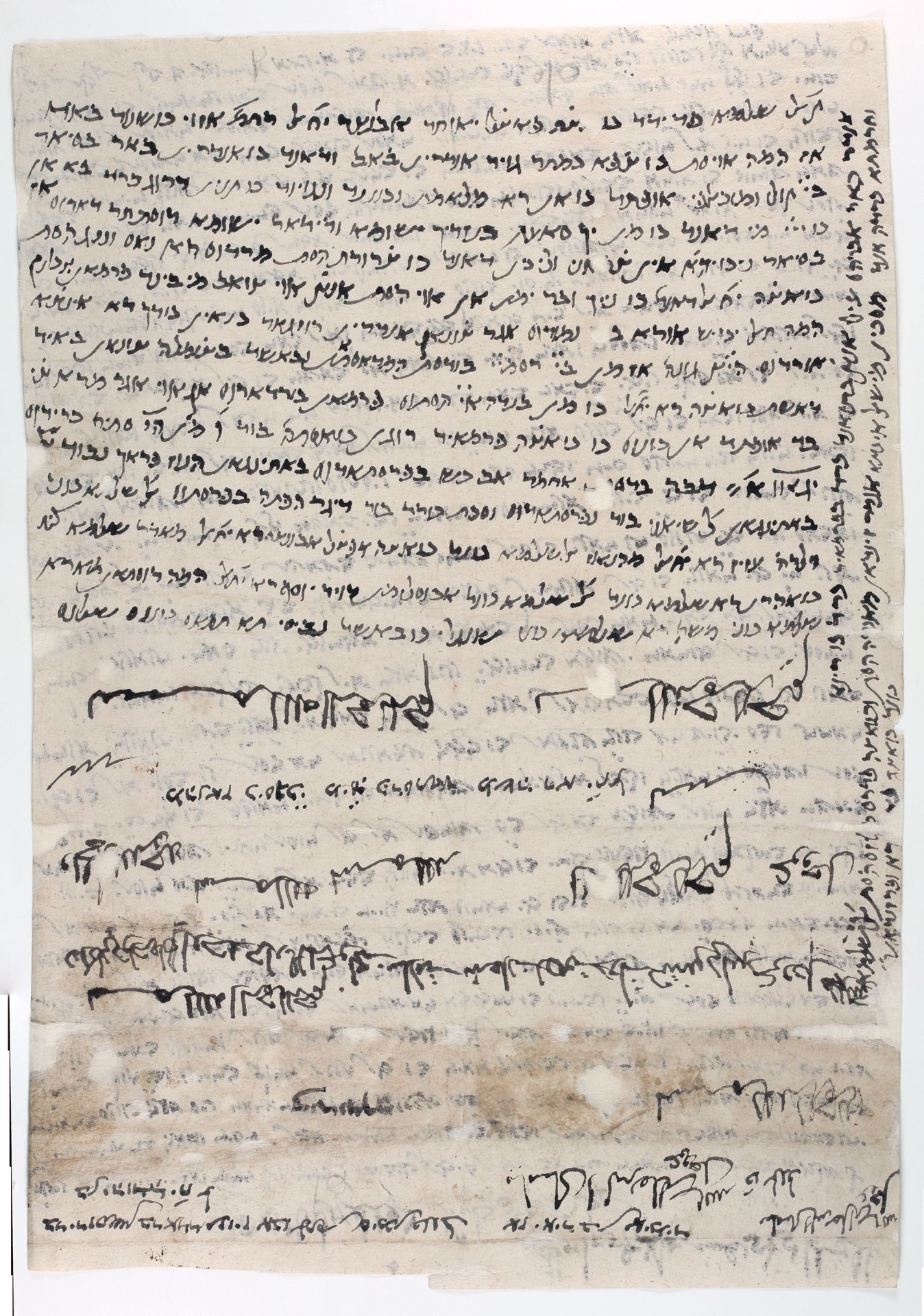Details
Download
Download IEDC Data
You are about to download data for the current text from the IEDC database.
To start the download, please click on your desired format below.
Note: it can take up to several minutes to download your data, so please wait whilst it processes
- Microsoft Word (.docx)
- JSON
Download started
Content
Fully preserved letter written in Early Judeo-Persian. It was sent from Ghazna to Abū al-Ḥasan Siman-Tov b. Abū Naṣr Yehuda, who was in Bāmiyān, by Yaʾir, son of Ēmēd. Yaʾir writes at length about personal issues, mainly justifying his remaining in Ghazna, probably to the recipient’s displeasure, and expresses his desire to bring his family there. Yaʾir also lays out the reasons that prevented him from leaving Ghazna. Two of the main reasons for this were the nature of his work and his inability to practice other professions. Yaʾir also refers to his obligation to pay different types of taxes as a reason to stay in Ghazna.
Dates
(Dates unknown)
Details
Ms.Heb.8333.29
Gold (given following external peer review through journal/book publication)
People
- Abū al-Ḥasan Siman-Tov son of Abū Naṣr son of Dāniyāl (Abū al-Ḥasan Sīman Ṭūb (in Arabic script)) (male)
- Related persons:
- Abū Naṣr b. Dāniyāl (father)
- Ibrāhīm b. Dāniyāl (uncle)
- Abū Saʿīd (Bū Saʾīd) (male)
- Fārisak (male)
- ʿAlī (male)
- Abū Naṣr (male)
- Mahnāz (female)
- Abū Sulaymān David son of Yosef (male)
- Moshe (male)
- Abraham ʿIlay (male)
- Mishael (male)
- Yaʾir, son of Ēmēd (male)
Publications
- Haim, Ofir. “An Early Judeo-Persian Letter Sent from Ghazna to Bāmiyān (Ms. Heb. 4°8333.29).” Bulletin of the Asia Institute 26, 2016. pp. 103–119.
The IEDC translation and transcription have been taken from this publication
Related Shelfmarks
IEDC Data
107
12/03/2024
20/11/2025
Citations
Ofir Haim
The transcription and translation have been taken from a previous publication (see Publications)
Images of this Text displayed on this web page are provided by National Library of Israel.
© National Library of Israel, All rights reserved.
If you wish to reproduce these images please contact National Library of Israel.
© National Library of Israel, All rights reserved.
If you wish to reproduce these images please contact National Library of Israel.
Contact
invisible_east@conted.ox.ac.uk (Please include the above permalink when contacting the editorial team about this Text)

